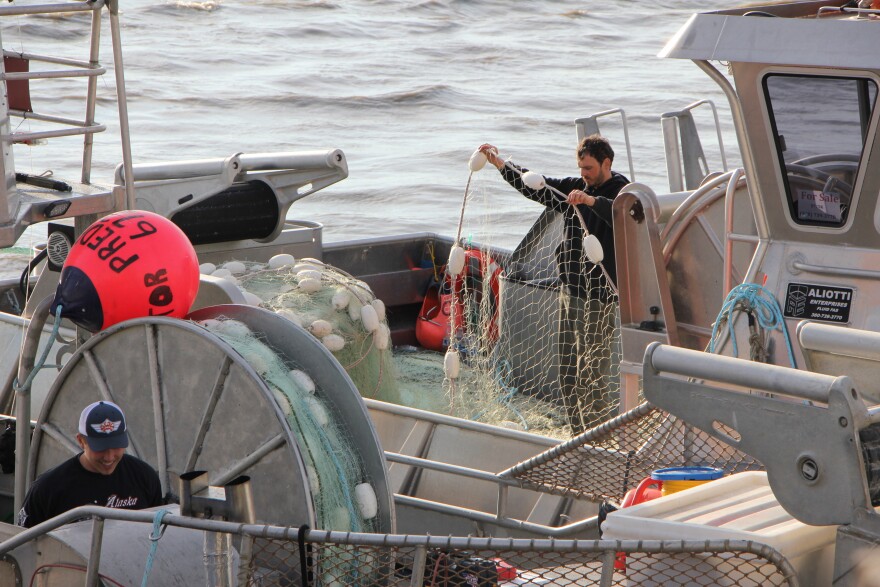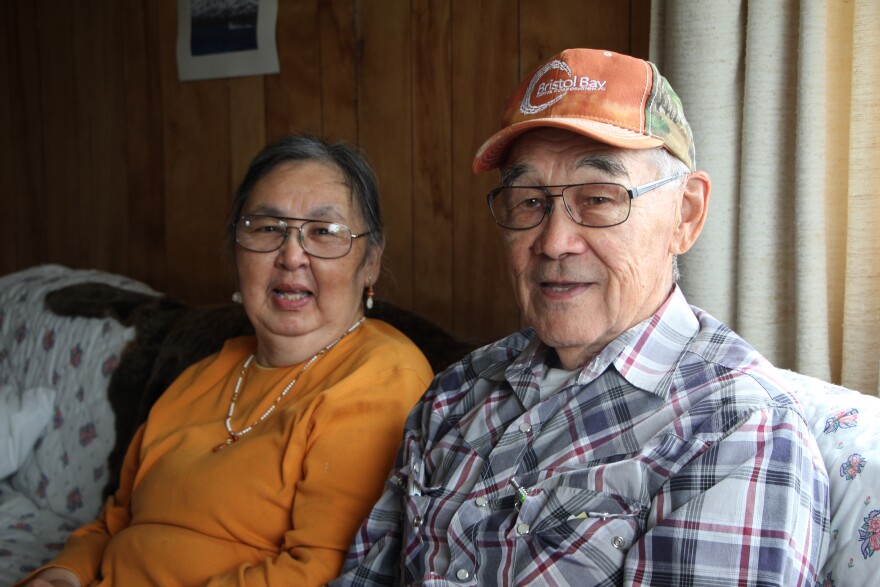During the fishing season, the transient population in Egegik swells to the thousands, with fisherman and fish processors, but people in the village say only 27 year-round residents wintered there last year.
The City of Egegik lies on the south bank near the mouth of the Egegik River, one of the most productive water sheds for sockeye in Bristol Bay.
Those who call Egegik home are becoming fewer, but there are still some who can tell of the area’s history, and others moving in to see what the future holds.
KDLG’s Nick Ciolino has the story:
AUDIO TRANSCRIPT:
The Egegik fishing district was closed for the day, and fisherman from a gillnet group were gathered outside a local tea hut to sit around listen to and play live music. Earlier that morning at the docks, tenders were delivering the sockeye catch to workers who process the fish into fillets. These are the sounds of Egegik when the sockeye run is just getting under way.

“I am thoroughly impressed that the fisheries has been managed as well as it has, and that there are people here that were here when I first came, and they were fathers and sons that have fished here, and of course, the fathers have retired, and their sons have taken over and now their sons are fishing.”
That’s Laurie Bonwell, the office manager at Alaska General Seafoods in Egegik. She has worked at AGS for 37 fishing seasons, and while she has seen the enduring sustainability of the Bristol Bay fisheries bring thousands of workers like her to the bay each year, she has also seen the year-round population of the city of Egegik diminish to less than thirty people. Bonwell says she does not expect the city will make a comeback.
“Part of the reason that so many people left was because they got away from that subsistence life that they had actually grown up with, and I have friends, you know, that are my age—which is in the 60s—and so, when they were kids, there were a lot of people here or quite a few people here, and they had a school, and they had a little theater. They had things and they did community things.”
But the school was closed two years ago when the population of children in Egegik dropped below ten—the minimum required for state funded education. Soon afterwards the only store left in town closed as well.
The two main entities operating year round in Egegik are the city government and the Egegik Tribal Council.
“We’re having trouble getting a full council together. The ones we have in there just leave.”
That’s Ricky Alto the second chief of the Egegik Tribal council. His wife is Bunny Alto, tribal secretary and BBEDC liaison.
She says when the store in Egegik closed, she began ordering food for the people in the village, and now runs a store out of the tribal council building.
“I started ordering the basics like bread, eggs, butter, milk, cereal, just things people could use, but by the time we get it in it’s wiped out pretty fast.”
Paul Boskoffsky has lived in Egegik most of his life. He is a fisherman and author. He says the fishery is the driving force sustaining what is left of the year- round population of Egegik, and adds the industry brings together the year-round residents and those who arrive each year for the fishing season.

“Fishing is the key income for our village here in Egegik, and in Bristol Bay. Of the 52 years that I’ve been fishing here we have some close friends—people that come in. And every year we look forward to meeting them, so that’s a positive.”
Egegik will have a new city administrator this winter when Don Strand retires afer ten years on the job. His replacement, Bill Yost, is moving his family of four to the village. The Yosts are expected to raise the winter population of Egegik this year.
I’m Nick Ciolino. KDLG News.
Contact KDLG reporter Nick Ciolino at fish@kdlg.org or 907-842-5645


